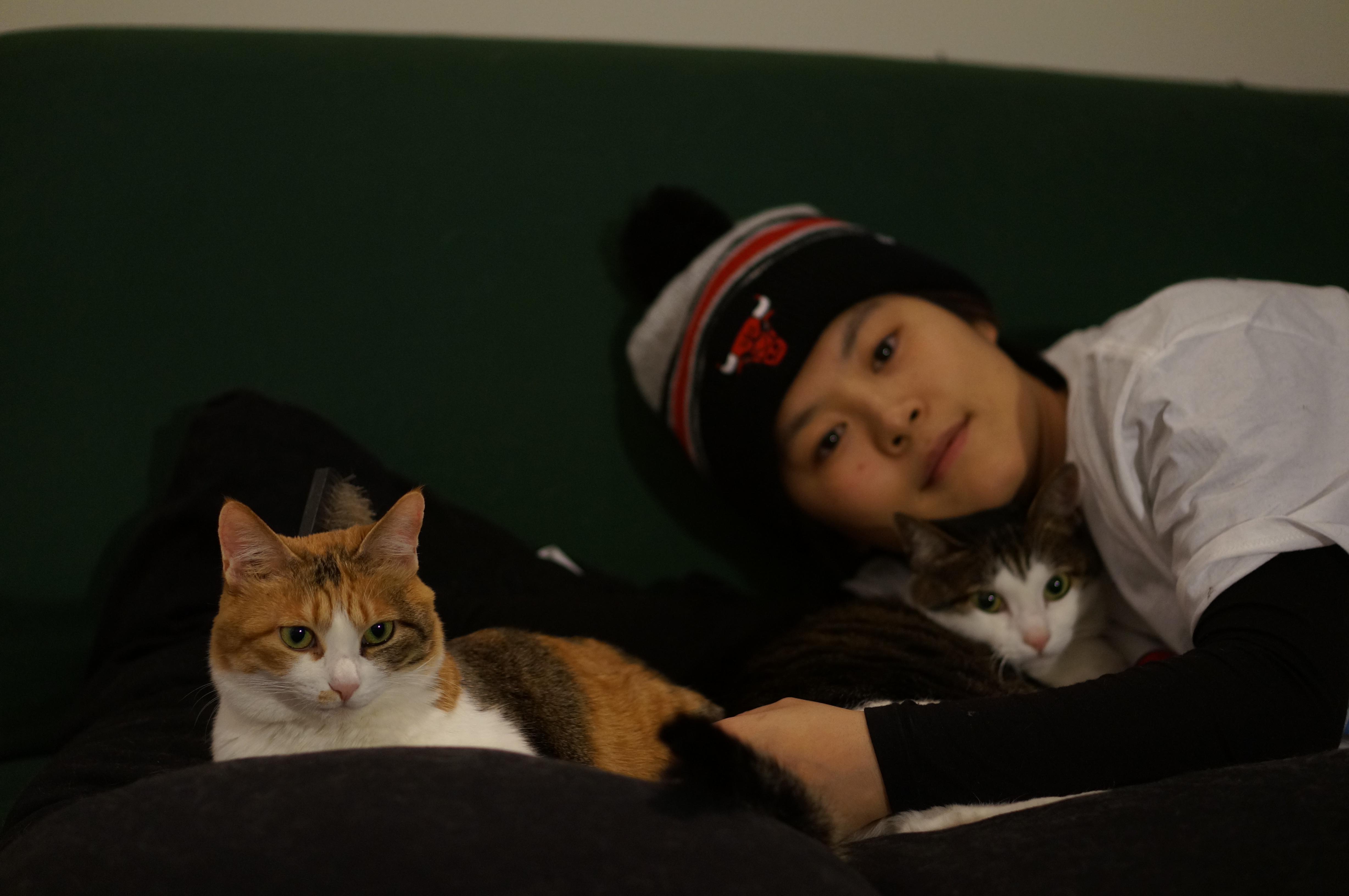
Student Collaboration: Hongjun Ye (MAM ’16) & Parallel Planet
How did the Parallel Planet project come about?
The idea of Parallel Planet: Hip Hop Dance in China stemmed from a conversation that Xinqi Tao, a student majoring in Arts Administration at SAIC, and I had at the end of last year. Tao, as a beginner in hip hop dance, had many questions about hip hop dance and also the industry in China. Before starting my graduate study at Columbia College Chicago, I had been a member of Speed Dance Group, one of the best hip hop dance groups in China for six years. I shared my experience from beginner to an instructor in the hip hop world with Tao, and pointed out to her that there is a common feeling among my peers that the more we know about the origin of hip hop and the cultural context of its beginning, the more we feel that hip hop in China seems on a different path – they are similar in certain ways, while divergences, even contradictions are also exist at the same time. It is an interesting topic for both of us because of my research interests about social identity and Tao’s interest in hip hop dance. Thus, we decided to start a project that could allow both of us, and other people, to further investigate hip hop culture in China.
In what ways did the project help you grow as a professional in your field of study?
This project is a good opportunity for me to explore more in the visual arts field, which I’m not familiar with. Before this project, I didn’t have any experience in the visual arts side, curatorial practice is completely new to me. Bob (Associate Professor Robert Blandford) was very helpful during the whole process. He guided me from the beginning to the end with many good examples, cases, and discussions. After this project, I now have a clearer picture of what curatorial practice is about. I really appreciate this because I think all art forms are related to each other, and it is good for an arts manager to know art forms.
What was the collaboration like with students and artists from varied schools and disciplines?
It is fun, exciting, and also challenging. We had students from Columbia, SAIC, and DePaul involved in this project. Everyone had different schedules, and sometimes it was very difficult to set up a time that worked for everyone. Also, each school had its unique teaching philosophy, and as a result, sometimes the students would hold very different opinions on certain subjects and would prefer solutions different from the others. Working with them truly expanded my understanding on the related subjects. This experience was very valuable because an arts manager in the real world usually needs to work with people that have very different personalities and philosophies toward the arts.
How has Columbia/Business & Entrepreneurship supported you through the process of planning, pitching, and executing Parallel Planet?
I enrolled in Bob’s curatorial practicum, it is similar to an independent study, but it is different in certain way. In the class, each of our classmates worked on his/her project, which may have been at different stages. For example, some were at the stage of creating a concept, some were at the stage of refining the working plan, some were at the stage of executing the plan. It was good to learn from different people’s project. Since Parallel Planet was almost at the executing stage when entering the class, it was good for me to see how other people developed their own concept, and built their project from the very beginning.
As you know, the last semester for graduate Master of Arts Management (MAM) students is composed of all electives, which provides flexibility for students to focus on their interests. How did you tailor your last semester to fit your Parallel Planet goals and other endeavors?
This semester I chose Cultural Policy and Planning, Managing and Licensing Intellectual Property, Executive Production for Film and TV and also Bob’s Curatorial Practicum. Parallel Planet actually is one of my main focuses this semester, but it is not the only one. As you can see, the Cultural Policy and Planning is related to it, but the reasons I took the other courses is that I wanted to learn more from the other aspects, to get a more comprehensive understanding of the arts and entertainment industry as a whole.
What are your plans after graduation? OR Where do you see yourself in five years?
I have accepted a PhD in Marketing offer from Drexel University, so for the future I will devote myself to academia. My concentration will be consumer behavior in marketing. I will continue to explore the arts and entertainment industry, from the perspective of marketing.
How has being a student at Columbia impacted your career path to success?
Arts Management at Columbia is a great program. I am glad that I chose Columbia two years ago. Every faculty member is super helpful, especially Philippe, Jason, Dawn, David, and Bob. They are all very helpful and provided me invaluable advice through my graduate study and my research. Without their help I couldn’t find my interests or have the opportunity to continue my study at the PhD level. Gigi and Kevin from the international student office are also very helpful. An international student is faced with many challenges, and I am glad that I have support from the Columbia community from the beginning to the end.
What advice would you give to prospective students? Current students?
For prospective students, choose Columbia!